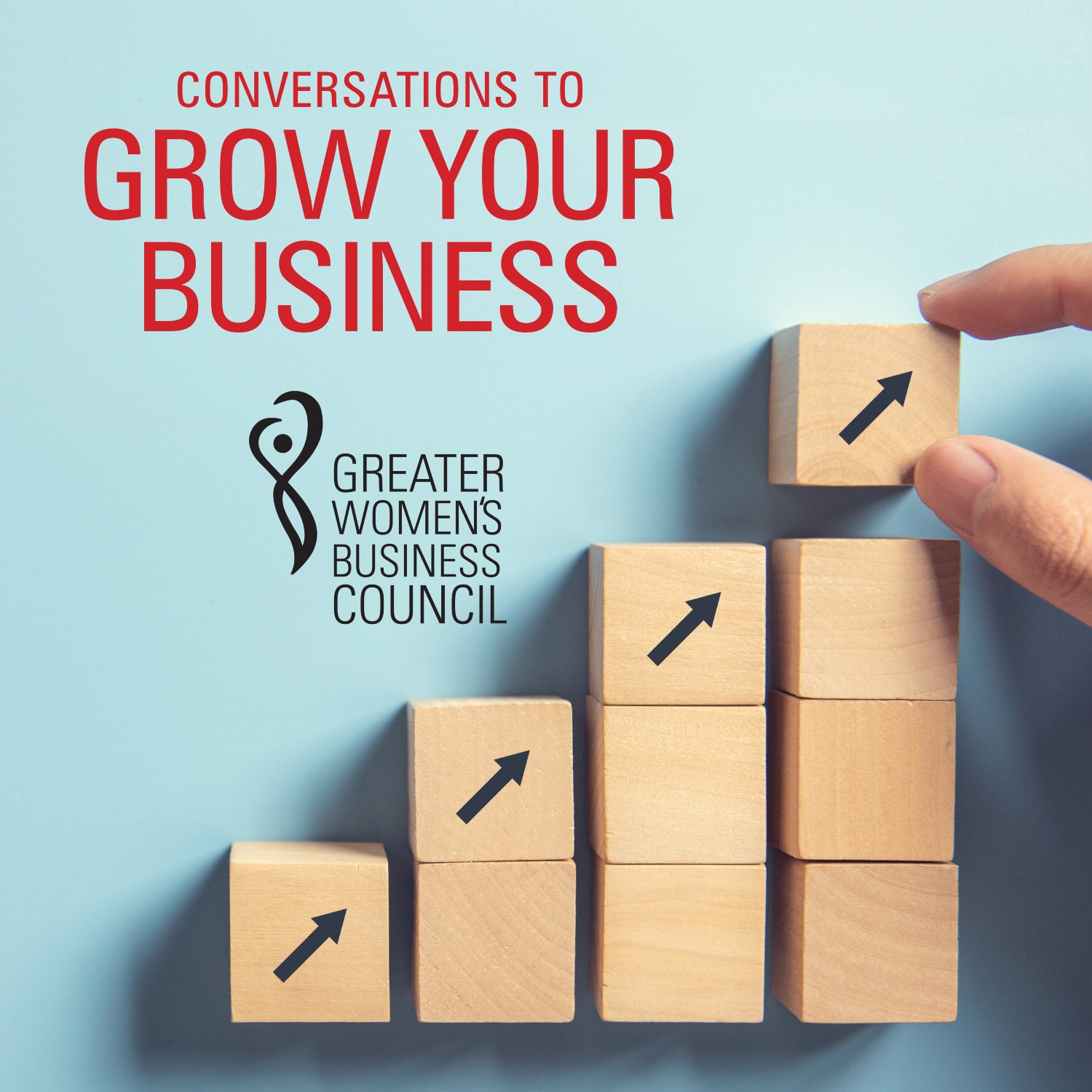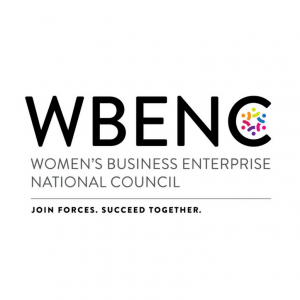
 Allison O’Kelly, Corps Team
Allison O’Kelly, Corps Team
TRANSCRIPT
Intro: [00:00:04] Broadcasting live from the Business RadioX studios in Atlanta, Georgia, it’s time for GWBC Radio’s Open for Business. Now, here’s your host.
Lee Kantor: [00:00:18] Lee Kantor here. Another episode of GWBC Open for Business. And we’re broadcasting live at the Georgia World Congress Center for WBENC’s National Conference. I think this is their 25th year of doing this. It’s a great event. The conference floor is humming with people getting set up. And our first guest today is Allison O’Kelly with Corps Team. Welcome, Allison.
Allison O’Kelly: [00:00:41] Hi. Thanks for having me.
Lee Kantor: [00:00:42] You got to get in there, rock star close.
Allison O’Kelly: [00:00:44] Alright. Rock star close.
Lee Kantor: [00:00:45] There you go.
Allison O’Kelly: [00:00:46] Thanks for having me.
Lee Kantor: [00:00:46] Well, I’m so excited to learn what you’re up to. Tell us a little bit about Corps Team. How are you serving folks?
Allison O’Kelly: [00:00:51] Yes. So, we are a professional staffing and search firm, so we help companies find talent, which, as you know, today is kind of difficult to do.
Lee Kantor: [00:01:00] That’s right. So, you’re probably a leading indicator of when the economy is doing great and when employment’s kind of full.
Allison O’Kelly: [00:01:07] You’re absolutely right. We know pretty quickly when our mix of contract labor and direct hire labor starts shifting, it shows that things are happening.
Lee Kantor: [00:01:17] Things are happening. So, where are we at right now?
Allison O’Kelly: [00:01:20] It’s still wild. People are looking for both, contractors and direct hire. And more direct hire than typical, which is a good sign for the economy, but you’re starting to hear a little bit of layoffs, but we haven’t seen any yet.
Lee Kantor: [00:01:37] Now, is it across all industries? Is this kind of industry agnostic growth, or is it kind of, oh, it’s only like you’re coders, you probably never have enough coders in technology, things like that, but is it across the board?
Allison O’Kelly: [00:01:49] It really is across the board. I mean, of course, you had some industries slow with the pandemic, travel, hospitality, that kind of stuff, but other than that, I mean, everything is really taking off. I mean, you are starting to hear of layoffs in the tech sector. We’re not hearing that in our other clients at all.
Lee Kantor: [00:02:10] And then, are you saying the rate that people are being paid, is that increasing a little bit?
Allison O’Kelly: [00:02:17] Very much so, yeah, which is a real struggle for companies, because the pay rates are going up a ton and maybe they haven’t been able to increase their prices as much yet, so it’s a challenge. You hear a lot of hiring managers saying, but this person isn’t worth that amount of money, and you’re like, well, if that’s the going rate, they are worth that amount of money.
Lee Kantor: [00:02:38] Guess what, that’s the new rate
Allison O’Kelly: [00:02:39] That’s right.
Lee Kantor: [00:02:40] Now, what about the work from home? Are you finding kind of push-pull in that regard as well in terms of our people saying, hey, look, I’ll take the job, but I’m working out of my house, like they’re kind of adding that into the negotiation now?
Allison O’Kelly: [00:02:53] Yes and no. I would say companies at this point are pretty much saying what they’re doing, but the more flexible the companies are being, the more talent is going to be interested in their opportunities.
Lee Kantor: [00:03:08] Right. Are people switching to a hybrid? Are you finding that where it’s like they’re making them come in the office for some, but then it’s back and forth?
Allison O’Kelly: [00:03:16] We have a lot of hybrid. Our clients who want all in-office are few and far between at this point. Most have some sort of hybrid or what they’re calling now remote first. Meaning, remote.
Lee Kantor: [00:03:31] Right. Exactly.
Allison O’Kelly: [00:03:31] Yeah.
Lee Kantor: [00:03:32] Because people are like, no, I want to only go in the office, but that’s a short list, right?
Allison O’Kelly: [00:03:36] Where you find it, and this is a challenge, is for people who are newer in their careers, younger people right out of college because they need the training. So, it’s really tough for them to-
Lee Kantor: [00:03:49] Do that remotely.
Allison O’Kelly: [00:03:50] Right. Absolutely.
Lee Kantor: [00:03:51] Now, so what’s it like when you’re working with a client? So, they come to you, they’re like, hey, I need five, blah, blah, blahs, and they’re like, okay, Allison, my team are going to jump in there and find you. Those folks, like how does it work?
Allison O’Kelly: [00:04:03] Those five, blah, blah, blahs?
Lee Kantor: [00:04:05] Right.
Allison O’Kelly: [00:04:05] Yeah, exactly. I mean, it really depends. So, for larger clients, they tend to work through a large staffing firm. And then, we support those large staffing firms for their regular contractor needs. For the smaller and mid-sized growing firms, yes, they’ll come to us and ask for the specific roles, and we’re helping with those.
Lee Kantor: [00:04:26] And then, so you’re just kind of do that—you’re part of their team?
Allison O’Kelly: [00:04:31] Yeah, absolutely.
Lee Kantor: [00:04:32] And then, do you have a specialty, a niche that you’re like, okay, we’re great at this type of person?
Allison O’Kelly: [00:04:38] Everything.
Lee Kantor: [00:04:39] Everything?
Allison O’Kelly: [00:04:39] We do—our history has always been in professional staffing, so that would be your accountants, marketing, HR, strategy, higher-level admin. We don’t do low level, but maybe like an executive assistant. And then, about three or four years ago, we added engineering and IT, which of course, as you can imagine, is our fastest-growing area. So, we do a lot in financial services, we do a lot in logistics, but as far as industry goes, it really doesn’t matter. It’s more the functions within the industry.
Lee Kantor: [00:05:13] Now, how would a candidate stand out to you? Like how do you find those candidates, because a lot of them right now, I would imagine, have jobs?
Allison O’Kelly: [00:05:20] They do. And so, that is why companies are coming to us more now than they had in the past, because people are not applying to jobs as they once had. And if they are applying, sometimes, that’s not a good sign. Why is somebody actively looking for a job at this point unless their company decided to be all in person or whatever? But we are actively sourcing those candidates. So, we have our own talent pool of over 300,000 employees—not employees, candidates who we have access to, as well as all sorts of subscriptions with LinkedIn Recruiter, and CareerBuilder, and Indeed, and Dice, and everything else, so we’re going to go out and actively search for candidates.
Lee Kantor: [00:06:05] So, now, if you’re a candidate out there or you’re working and you’re like, I want to be—I want to know what’s out there, what can I do on LinkedIn specifically to stand out so that Allison and her team call me?
Allison O’Kelly: [00:06:17] Yeah. I mean, there’s a couple of things. Number 1, and this, it all depends if you’re employed, if you want to do this or not, but you can flag yourself as open to work. So, recruiters definitely sort by who’s open to work and who’s not. But again, if you have a job, you might not want to do that. But the biggest thing is keywords. Everything is done by keywords these days. So, if you’re looking for a particular type of job, even if that’s not in your history, putting in your summary, looking for a job in X field, and putting words as often as you can without being completely obnoxious, they’re going to come up.
Lee Kantor: [00:06:54] That helps?
Allison O’Kelly: [00:06:55] Yeah, they’re going to come up in the search.
Lee Kantor: [00:06:56] So, you’re doing a search, like what would be a search term you would look for if you’re looking for somebody?
Allison O’Kelly: [00:07:01] Maybe I’m looking for somebody from a big four accounting firm, right? So, I might look up big four, I might look up audit, I might look up KPMG specifically, and maybe that person really wants to go into finance and that’s not where they were, then they should put in there, seeking financial analyst position, something like that.
Lee Kantor: [00:07:23] Right, because you might search for a financial analyst and that would bubble up.
Allison O’Kelly: [00:07:27] That’s right.
Lee Kantor: [00:07:28] So, now, what brings you to this show? Why is it important for you to be here?
Allison O’Kelly: [00:07:32] Well, we are an Atlanta-based woman-owned business. And so, we have been WBENC-certified for pretty much since our inception 17 years ago. And so, we’re part of the host committee for the Atlanta market, who is bringing this conference.
Lee Kantor: [00:07:49] Right. So, welcome all these people, because this conference is for people all over the country, right?
Allison O’Kelly: [00:07:53] Absolutely. So, part of it is to welcome, and part of it for us is we do a lot of work with large companies, so meeting new large companies and seeing some of our clients as well.
Lee Kantor: [00:08:03] So, now, what has been the biggest impact from being part of GWBC?
Allison O’Kelly: [00:08:09] I think the big thing is events like this where you’re able to meet people in procurement and supplier diversity who are really going to look out for women-owned businesses. I think for us, especially in search and staffing, it’s not as rare as it may be in some organizations, so it gives us a leg up, but it certainly isn’t going to open the doors necessarily, but it helps.
Lee Kantor: [00:08:35] Sure. But they have programs in place that help you kind of have conversations with enterprise-level organizations?
Allison O’Kelly: [00:08:42] Absolutely. Yeah, most of them, and these are the people who are exhibiting here or if they might have a whole supplier diversity department or certainly part of procurement, where they’re looking, if they’re going to do business with 10 staffing companies, they want to make sure a certain percentage of them are women-owned, diverse, whatever else that might be.
Lee Kantor: [00:09:04] And you’re getting conversations, and building relationships, and you can’t have too many of those, right?
Allison O’Kelly: [00:09:08] That’s exactly right.
Lee Kantor: [00:09:09] So, if somebody wants to get a hold of you and learn more about Corps Team, what’s the website?
Allison O’Kelly: [00:09:15] It’s corps like Marine Corps, corpsteam.com.
Lee Kantor: [00:09:20] Well, Allison, thank you so much for sharing your story today.
Allison O’Kelly: [00:09:23] Thanks for having me.
Lee Kantor: [00:09:24] Alright. This is Lee Kantor, broadcasting live from the WBENC National Conference in the GWBC booth.
About WBENC
The Women’s Business Enterprise National Council (WBENC) is a leading non-profit organization dedicated to helping women-owned businesses thrive.
We believe diversity promotes innovation, opens doors, and creates partnerships that fuel the economy. That’s why we not only provide the most relied upon certification standard for women-owned businesses, but we also offer the tools to help them succeed.
About GWBC
The Greater Women’s Business Council (GWBC®) is at the forefront of redefining women business enterprises (WBEs). An increasing focus on supplier diversity means major corporations are viewing our WBEs as innovative, flexible and competitive solutions. The number of women-owned businesses is rising to reflect an increasingly diverse consumer base of women making a majority of buying decision for herself, her family and her business. 
GWBC® has partnered with dozens of major companies who are committed to providing a sustainable foundation through our guiding principles to bring education, training and the standardization of national certification to women businesses in Georgia, North Carolina and South Carolina.














